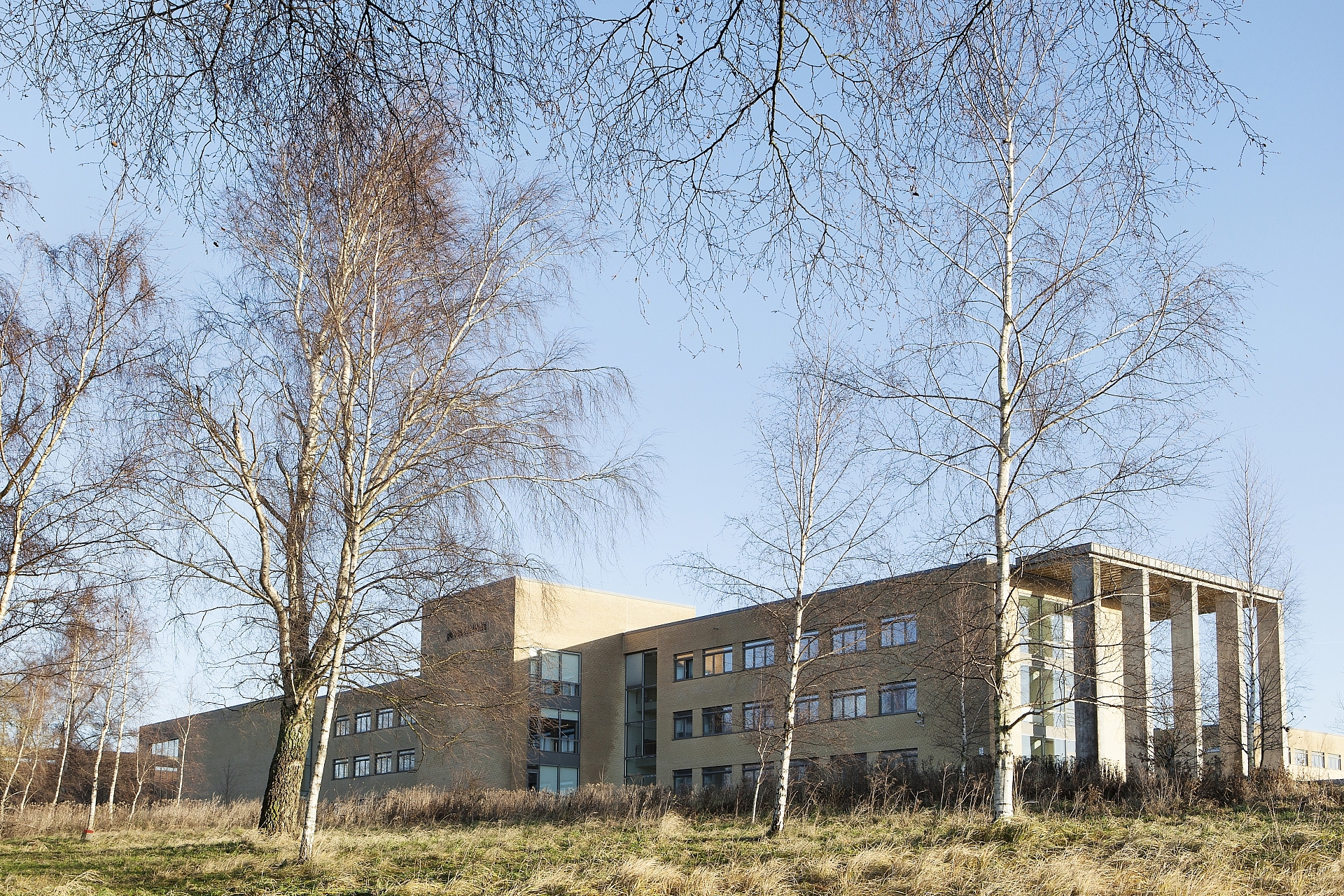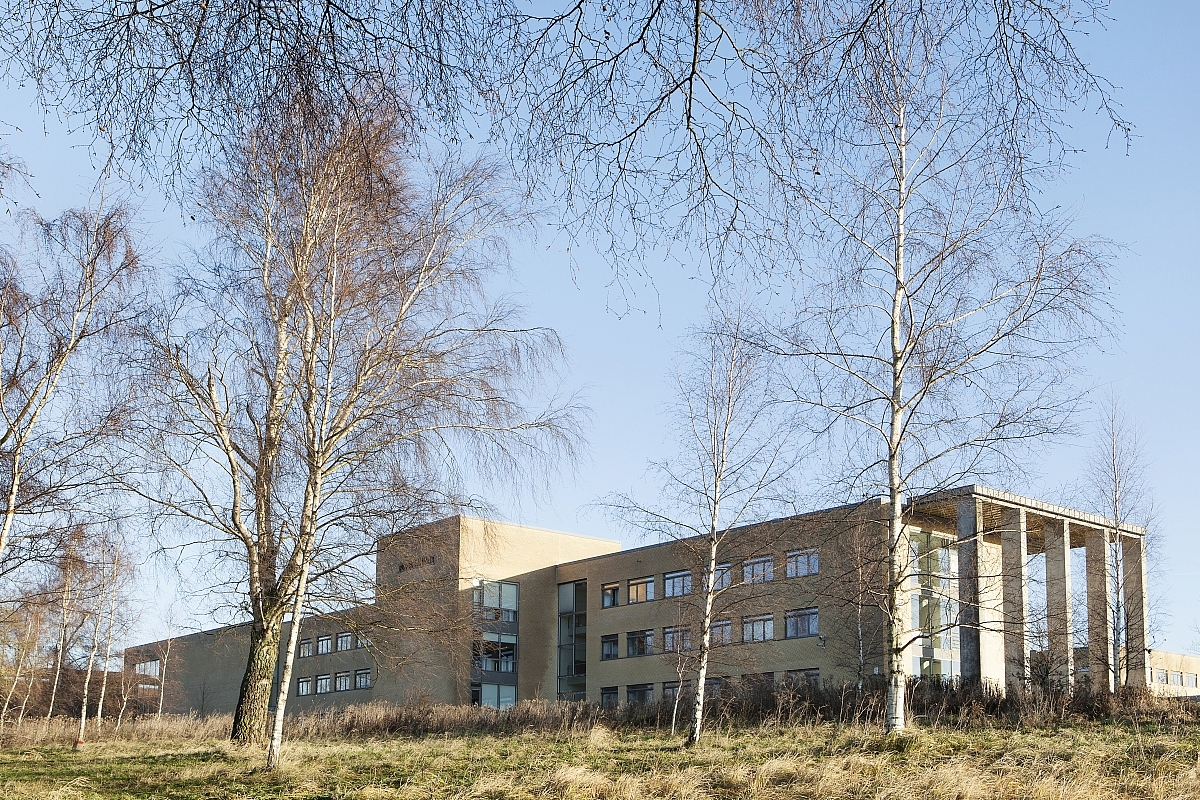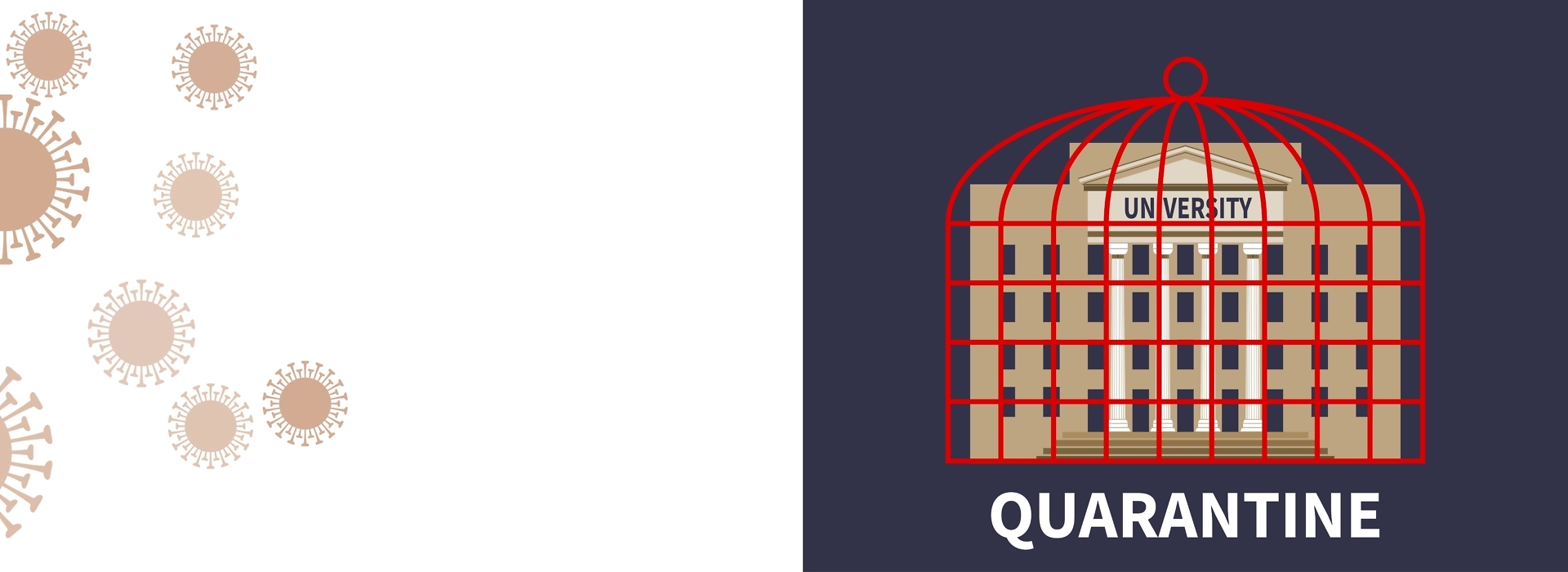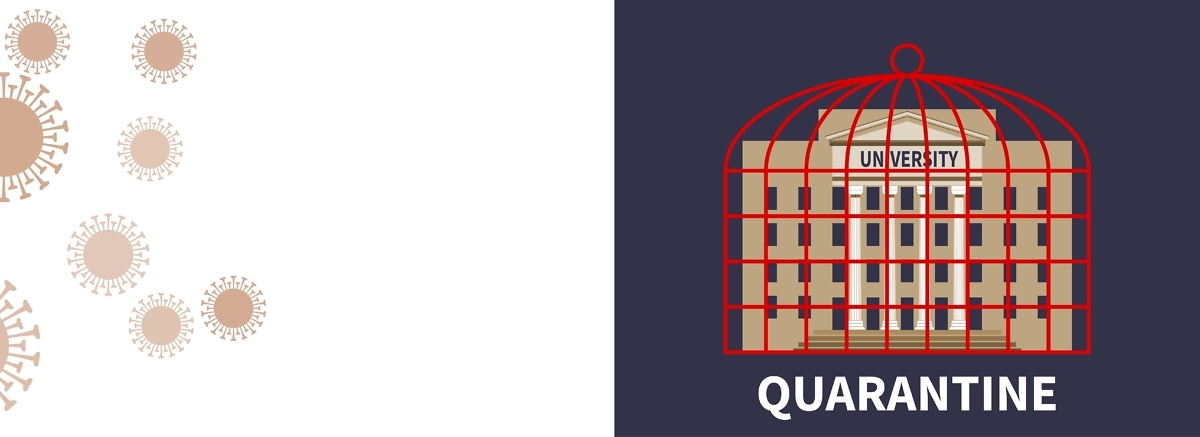

SamBach
At the Department of Social Sciences and Business the primary focus has been on both to educate the professors in hosting classes in Teams but also on how to ensure that the exams live up to the usual educational standards – even when held in a different form than usual.
For example, on the master’s course in ‘Human Resource Management’ extended guidance has been provided on how to conduct research without the possibility of field research which has otherwise been a part of the course structure. Head of Department, Peter Kragelund, emphasizes that it has been a top priority to be able to not postpone any exams for the sake of the student’s opportunities in their future studies:
»We will not be pushing any exams or courses for the sake of the student’s opportunity to apply for external courses at other universities and master’s applications in both Denmark and abroad,« says Peter Kragelund.
This stand is also exemplified by the exam in ‘Quantitative Methods’ which is typically an exam with physical attendance. This has been changed to a four-hour exam at home:
»We obviously cannot conduct the large exams with 300 students sitting in front of their computer in one room. We have changed these exams to be either written online or individual oral exams via Teams,« says Peter Kragelund.
It is, however, not only the master’s and bachelor’s degrees that faces the department with issues. They have been forced to retract scientists and PhD students from field work and are now working to solve the puzzle of giving them the opportunity to finish their studies:
»We are trying to solve the challenge of when the retracted scientists are going to complete their field research since they have been prevented from doing so this semester. Many have taught classes in order to travel this semester, and we have to figure out when they are going to resume their studies, since they were originally supposed to return to teaching next semester,« says Peter Kragelund.
HumBach
At the department of Communication and Arts they have, as the other departments, attempted to make minimal changes in the exams; however, they have also tried to investigate into how to implement the online teaching in the future – for example by foreseeing how this can be used to engage students in-between classes.
In spite of trying to keep the exams as they were some changes has been made. This concerns for example the 4th semester-projects in Performance Design where students originally are supposed to produce or arrange a concrete product or event. This requirement has been waivered and replaced by the requirement that the students must argue why and how this product or event could proceed or function.
Some exams have been changed from oral to written home-assignments. Deputy Head of Department, Sune Lægaard, explains that this step is taken partly in order to prevent cheating:
»Some exams with preparation time have been changed to written exams because we had no way of knowing via Teams, if the student was actually alone in his or her preparation time,« says Sune Lægaard.
This semester’s corona lock-down has especially brought big changes to the students on the 3rd semester course ‘Journalistic Productions’. Traditionally, the students are to touch base with TV – and Radio production, but this has been moved to supplementary courses to be attended later on in training, since it is not possible to exert this part of the course through distance learning. The exam is usually a test with physical attendance and the department faculty have decided that they will not be able to conduct this as a written online exam. The students therefore face the possibility of taking this exam as late as in August.
Despite challenges and changes, the administration at the Department of Communications and Arts are set on finding a silver lining in the lock down. They were already experimenting with partially online courses before covid-19 and sees the potential of implementing this way of teaching in the semesters to come:
»We have discussed what it really entails to be a full-time student because it is not just showing up at classes and reading in between. We have seen professors who give the students home-assignments between classes and use the time in Teams to discuss these assignments. We are considering this as a model to implement in the future in order to change what it means to be a full-time student,« says Sune Lægaard, and continues:
»A well-planned course is one that also activates students in between classes.«
Do you need more information?
For more information regarding the changes due to covid-19, visit RUC’s ‘corona FAQ’ on intra: https://intra.ruc.dk/en/students/student-hub/corona-faq-for-students
For questions regarding your exams and courses, contact the StudentHub on:
+45 46 74 23 00
NatBach
As in every other department, the Department of Science and Environment have experienced challenges regarding exams – especially in the case of semester projects and research projects dependent on laboratory experiments. They risked losing data and even machinery if maintenance was to become impossible. Luckily, a solution was found:
»We had installed a contingency group who was licensed to maintain the experiments, machines and samples in the laboratories during the lockdown. Nothing in our laboratories have suffered damage from the lock down«, says Head of the Department of Science and Environment, Susanne Sørensen.
Due to the government allowing a slow reopening of the laboratories at the universities, Susanne Sørensen hopes exams can be conducted before August – which many had feared in the case of a continued lock down:
»Some exams have been postponed, but we hope to be able to conduct them before August. This seems likely as the laboratories are reopening as we speak,« says Susanne Sørensen.
Unfortunately, some students were still affected immediately after the announcement of the lock down on the 11th of March. Students on the course Statistical Modeling were scheduled to have an exam on the 12th of March. This was cancelled but quickly rescheduled.
The Department of Science and Environment have ensured the students to provide information regarding changes in exams two weeks before the scheduled exam at the latest.

The message sent to the students on the 12th of March announcing the postponing of their exam in ‘Statistical Modeling’ and the e-mail received on the 27th of May containing new dates for the exam.
HumTek
The Department of People and Technology did not face many challenges as regards course structure and exams. Many courses were scheduled to be oral, which is easily transferred to Teams, or written home assignments. Camilla Schmidt, Deputy Head of the Department of People and Technology, credits this to the quick response and conversion to distance learning from the employees:
»We quickly coordinated with the heads of the institutions and had already prepared a new plan for the semester two days after the lock down was implemented,« says Camilla Schmidt and continues:
»I was personally surprised by the great initiative from the professor at the department. They have truly engaged in making the distance learning work and to find new ways of teaching. I have experienced that many are willing to continue the online education to some degree in the future«.
Although the lockdown has had minimal impact on the exams and course structure there has been some major changes on the course ‘Geography in Praxis’ (Geografi i Praksis, red.).
»The course Geography in Praxis have faced the greatest changes. They should have been interns in some municipalities for three days, but we have been forced to reschedule these,« says Camilla Schmidt.

